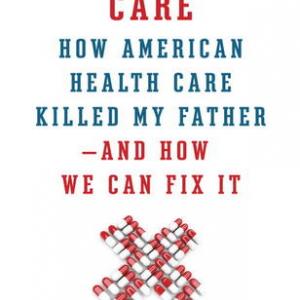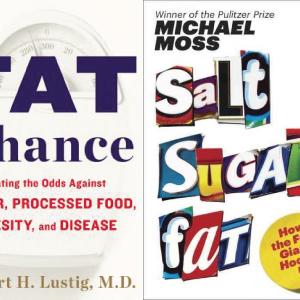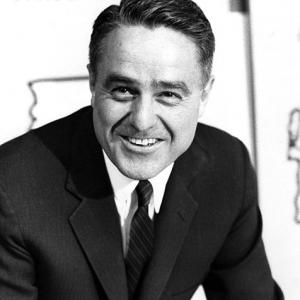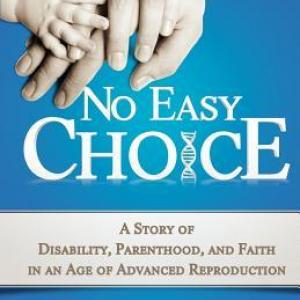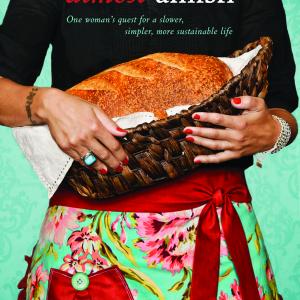
LaVonne Neff is an amateur theologian and cook; lover of language and travel; wife, mother, grandmother, godmother, dogmother; perpetual student, constant reader, and Christian contrarian. She blogs at Lively Dust and reviews books for various magazines.
Posts By This Author
How To Make Childbirth Safer (Not By Spending More Money)
"American Way of Birth, Costliest in the World"
That's the headline of an article by Elisabeth Rosenthal in yesterday's New York Times. The article includes a chart comparing childbirth costs in seven countries. In the United States, the average amount paid for a conventional delivery in 2012 was $9,775; for a Caesarean section, it was $15,041. Those are the highest prices for childbirth anywhere in the world.
To get an idea of just how high, I made a chart using the figures in the NYT chart. Childbirth costs in the other six countries range from 21 percent to 43 percent of U.S. costs even though American women typically spend far less time in hospital.
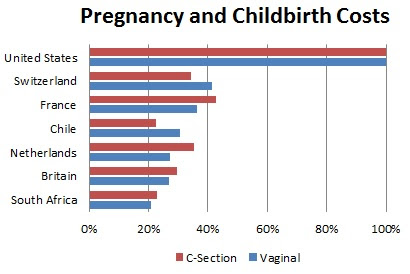
South Africa is so dangerous for childbirth that its graph line would not fit on this blog page. For every 1,000 births, there are 56 infant deaths. For every 100,000 births, there are 400 maternal deaths. [Chart by L. Neff; data from WHO]
Review: 'Catastrophic Care: How American Health Care Killed My Father — And How We Can Fix It'
This week the company my husband works for unveiled the health-insurance plans available to us beginning July 1. If we chose the plan closest to our current plan, our premium would nearly double and our office visit co-pays would increase 25-50 percent.
I am so glad we are going on Medicare in August.
Medicare isn't perfect by any means. It isn't even cheap. Just the insurance (Medicare medical, Medicare supplement, prescription) is going to cost us more than $500 a month, and that doesn't include the deductible or the prescription co-pays. And that's for this year. Who knows what it will cost 10 years from now?
I was so ready to read a book that would solve America's health-care crisis.
Besides, David Goldhill's title is irresistible: Catastrophic Care: How American Health Care Killed My Father - And How We Can Fix It.
Money: The God of This World
Last week Pope Francis spoke out against the cult of money. Here is how Catholic News Service's Carol Glatz summarized his remarks:
Pope Francis called for global financial reform that respects human dignity, helps the poor, promotes the common good and allows states to regulate markets.
"Money has to serve, not to rule," he said in his strongest remarks yet as pope concerning the world's economic and financial crises.
A major reason behind the increase in social and economic woes worldwide "is in our relationship with money and our acceptance of its power over ourselves and our society," he told a group of diplomats May 16.
"We have created new idols" where the "golden calf of old has found a new and heartless image in the cult of money and the dictatorship of an economy which is faceless and lacking any truly humane goal."
If You Eat Food, Read This
If you eat food, here are two newish books you should know about.
You may already have met Robert H. Lustig, author of Fat Chance: Beating the Odds Against Sugar, Processed Food, Obesity, and Disease (2012). Lustig is the UCSF professor whose surprisingly riveting 90-minute lecture, "Sugar: The Bitter Truth," has already had nearly 3.5 million hits on YouTube. The thesis of his lecture: it's not dietary fat that's making Americans gain weight, it's sugar. And sugar is doing much worse things than increasing our clothing size. It's setting us up for a whole range of lethal diseases that are almost entirely avoidable.
...
In Salt Sugar Fat: How the Food Giants Hooked Us (2013), Moss, a Pulitzer Prize-winning investigative reporter, tells what the food industry has been up to during the last couple of decades. Food executives, Moss says, are nervous: people are figuring out that convenience foods aren't good for them.
Is the West's Reckless Lifestyle Killing Our Poorer Neighbors?
I spent an entire day a couple of months ago in an outpatient clinic (I'm fine; thanks for asking). I met a lot of nurses, and every one of them was excellent.
When Velda came to take away the remains of my lunch, I offered her my untouched can of ginger ale.
"I don't drink soft drinks," she replied. Since I rarely do either, we started chatting.
Velda grew up in Tanzania, moved to Belgium, spent several years in London, and finally came to the United States. She returns to Tanzania regularly, and she is not happy with what she sees.
"I grew up eating lots of vegetables," she told me. "We might have had ice cream once every three years. But now people are eating American-style junk food. They don't know it's not good for them."
Maybe the Fighting is Almost Over
"Faith in America's Future" — that was the theme of Monday's inauguration activities.
Watching the prayers, the songs, the speeches, the crowd massed on the Washington Mall, I felt the faith. We don't have to hate each other. We can work together for a future that will be good for our country and for us as individuals. We can, as the President charged us to do, make the "values of life and liberty and the pursuit of happiness real for every American."
Inaugurations are times for setting aside differences and wildly celebrating. While Richard Blanco read his inaugural poem, even John Boehner looked teary-eyed.
The political divisions will be back in full force this week, of course. And yet we Americans are in the midst of some really big changes — changes that may make today's partisan squabbles look hopelessly antiquated in just a decade or two. Monday's events highlighted these changes.
Violence : It Isn't Just About the Guns
This is not a blog post about gun control. Everything that can possibly be said about that subject, pro or con, has already been said millions of times since Friday. We are talking too much, too soon. In the words of my rabbi, “Judaism teaches that when there is nothing to say we should say nothing….Sometimes only silence gives voice to what has happened."
We Americans should all be sitting shiva.
But when, next week, we rise from our knees and begin working – together, I hope – to reduce the terrible problem of violence in our country, we must realize that our disorder goes much deeper than simply owning too many guns, and that any effective solution will have to go much deeper too.
When they are distressed, some people clean house or do push-ups I collect data. All week I have been amassing numbers and arranging them in rows and columns, trying to shed light on the question: Why are some nations violent while others are not?
'We're the Greatest': Empty Boast or Call to Action?
I believe we can seize this future together -- because we are not as divided as our politics suggest; we're not as cynical as the pundits believe; we are greater than the sum of our individual ambitions; and we remain more than a collection of red states and blue states. We are, and forever will be, the United States of America. And together, with your help, and God’s grace, we will continue our journey forward, and remind the world just why it is that we live in the greatest nation on Earth. -- President Barack Obama, 7 November 2012
Yesterday I joined a Facebook exchange about whether the United States is indeed the greatest nation on Earth. By quite a few objective criteria, I argued, we trail other nations: health care accessibility, lifespan, maternal mortality, education, infrastructure development, employment, equality of opportunity ... well, the list is frighteningly long. We are clearly not the greatest nation on earth by any standards that people from other nations would accept, and we are becoming less great every year (for a European view of America's decline, read this sobering article - in English - from Monday's Der Spiegel).
Yesterday I also told my two little dogs -- Muffin the poodle mix and Tiggy-Winkle the terrier -- that they are the best little dogs in the world. By quite a few objective criteria, I am deluded about my dogs. Tiggy digs holes in upholstered furniture, and she barks so much that she was nearly kicked out of obedience school ("Just give up," the trainer advised; "she's going to bark, whatever you do"). Muffin snores, refuses to cooperate with her groomer, and bites large dogs. But I love my dogs passionately. I wouldn't trade them for any Westminster champions or obedience winners. Several friends, watching me interact with Tiggy and Muffin, have said they would like to be my dogs.
Why We Eat Organic Foods (in Spite of Today's Headlines)
Hey, is this good news, or what?
Give up organic heirloom tomatoes at $4.99/pound!
Stop paying $5.99 up for a gallon of organic milk!
Buy cheaper ground beef than the organic grass-fed stuff at $7.99+/pound!
Slow down, folks. Read the articles, not just the attention-grabbing headlines. What the scientists discovered was basically this: Take two identical, ripe, juicy, fresh peaches, one of which was grown organically and one of which was not. Analyze the nutritional profile of each. You will find that one peach has just about the same vitamins as the other.
OK, and I'll bet they're pretty much the same color, too. And they probably weigh the same. And if dropped from a tall building, they most likely will go splat at about the same time.
Good Men and the Secret of Happiness
In June my husband, who gets lots of review copies unbidden, asked me if I wanted to read Mark Shriver's memoir about his father, Sargent Shriver, who passed away in 2011 at age 95.
"Since you're a fan of all things Kennedy," he said, "I thought you might want to see it."
I didn't.
True, a high point in my adolescent life was standing in back of St. Matthew's Cathedral one December morning in 1963 waiting for mass to begin when suddenly a very tall, very disheveled, very pregnant Eunice Kennedy Shriver pushed past me, wearing smudged red lipstick and a full-length fur coat. But sons are not necessarily good biographers, and anyway, I had a stack of mysteries awaiting my attention.
But then in July, a Facebook friend pointed me to Reeve Lindbergh's review of A Good Man in the Washington Post, suggesting that this was a book I might want to read. Lindbergh — herself the daughter of two famous parents, Charles and Anne Morrow Lindbergh — called it "a moving and thoughtful book." Maybe I'll read this after all, I said to myself. And then a week or two later, my friend Estelle sent me a copy of the book as an early birthday present, telling me she thought I'd connect with it on many levels.
I must be supposed to read this one, I thought.
Book Review: 'No Easy Choice'
I bought a car recently, and the dealer just sent me an online survey. It asks a lot of detailed questions and asks for yes-or-no answers.
Unfortunately, it's been several weeks since I was in the dealer's showroom, and I have no idea if the salesman offered me a drink, for example, or if he showed me how to work the sound system. So I tried to leave some questions unanswered, but the survey won't allow that.
Either I say yes or no, or I don't take the survey at all.
How contemporary, I thought. And how destructive of attempts to tell the truth.
Ellen Painter Dollar does not say yes or no in No Easy Choice: A Story of Disability, Parenthood, and Faith in an Age of Advanced Reproduction, but she tells the truth. In a book that is part memoir, part journalism, she recounts her lifelong struggle with osteogenesis imperfecta (OI) — her own and her daughter's.
Book Reviews: Four for the Summer
[view:media=block_1]
LaVonne Neff reviews The Red House by Mark Haddon, Drift by Rachel Maddow, The Beginner's Goodbye by Anne Tyler, and Some Assembly Required: A Journal of My Son's First Son by Anne Lamott with Sam Lamott.
The Matriarchal Blessing
With Mother’s Day just around the corner, I’ve been thinking about the matriarchal blessing—the moment when an old woman, staring death in the eye, communicates to a younger female relative or friend that life is good and love is eternal.
As far as I know, the only mention in the Bible of an older woman blessing a younger woman is when Elizabeth says to her young, unwed, pregnant relative Mary: “Blessed are you among women, and blessed is the fruit of your womb” (Luke 1:42). Elizabeth probably wasn’t the matriarch of her family, and she wasn’t about to die, but her Spirit-inspired words were still similar to a matriarchal blessing. She welcomed the new life growing in Mary, and her loving hospitality surely must have given courage to the baffled young mother-to-be.

Will We Be Able to Afford Medicare?
We'll be hearing a lot about Medicare between now and November. President Barack Obama wants to tweak it. Mitt Romney wants to reinvent it. Everyone who wants to get elected, however, agrees on one thing: nothing will change for the current crop of seniors and soon-to-be seniors.
Whew. Six months and Mr. Neff will be home free! Less than a year and a half and we'll both have free health care! And then we can afford to retire, right?
Wrong.
Scary Nuns Terrify the Vatican
The Vatican has always been scared of forceful nuns. Even (and perhaps especially) the three female doctors of the church made prelates nervous.
- In the 14th century, Catherine of Siena meddled in papal politics and brought the Avignon pope back to Rome.
- In the 16th century, Teresa of Avila survived an investigation by the Spanish Inquisition of her mystical writings (and Jewish ancestry).
- In the 19th century, Thérèse of Lisieux disregarded the commands of her priest and Vatican officials until the pope gave in and let her do what she wanted.
And last week, following a two-year investigation, 80 percent of American nuns came under Vatican fire.

++ Join us in showing our appreciation for Catholic women religious (aka nuns or "sisters") on Thank-a-Nun Day, May 9. Click HERE to send a thank-you note online. ++
Book Review: Almost Amish
If I had seen just the title of Almost Amish, I probably wouldn't have been attracted to it: I'm not a fan of Amish fiction, and I've heard too much about Amish puppy mills.
If I'd also noticed the name of the author, however, I might have picked it up: several years ago I met the Sleeths at the home of mutual friends, and I greatly respect the choices they have made about a simpler, more hospitable lifestyle.
Give Us This Day Our Daily (100% Natural) Bread: Shame on Whole Foods & Aunt Millie's
I just discovered I've been duped.
This is painful, because I like to think I know how to read labels. I also like to trust products named Aunt Millie and stores named Whole Foods.
Alas, I forgot one of my basic shopping principles: Never trust food that calls itself "natural."
In label language, natural means nothing at all. Companies who use the term in their marketing are usually trying to hide something. I should have looked more carefully at Aunt Minnie's Hearth Fiber for Life 12 Whole Grains bread.
Here, I'll show you the inset up close. I read it as "100% natural whole grain," never stopping to wonder why the marketers bothered to point out that whole grains are natural (isn't that obvious?). But no. This bread is not 100% whole grain. It is 100% natural, whatever that means, and it contains whole grains. Twelve of them, in fact. But its third listed ingredient, after water and whole grain wheat flour, is unbleached wheat flour.
How Soon Can We Come Up with a Healthcare Plan that Makes Sense?
Maybe the Affordable Care Act is constitutional and maybe it's not. If it turns out to be constitutional, maybe it's good legislation and maybe it's not. In any case, it's looking increasingly likely that the Supreme Court, come June, will strike down at least the requirement that everyone buy health insurance. And if the mandate goes, two other requirements will most likely go with it: Once again insurers will be able to reject or refuse to renew applicants. And once again Americans with pre-existing conditions will be uninsurable.
Let me tell you four short stories about friends of mine. These are true stories, not hypothetical examples. I have changed nothing but the names of the people involved. I am not arguing on behalf of the constitutionality of the Affordable Care Act. I'm just saying that all of these people had serious problems before it was passed, and some of them are doing much better now because of it.
BOOM: David Brooks, Charles Murray, and the Reign of Mammon
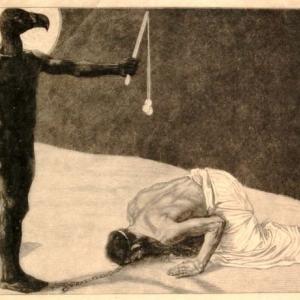
Der Mammon und sein Sklave. Holzstich, 1896 via Wiki Commons, http://bit.ly/zom5Df.
Tuesday's New York Times carried a thought-provoking op-ed by David Brooks called "The Materialist Fallacy." I recommend that you read it: it's only 764 words long. Brooks argues that "in the half-century between 1962 and the present, America has become more prosperous, peaceful and fair, but the social fabric has deteriorated." This is not just because of job loss (the liberal explanation) or government intrusiveness (the libertarian explanation) or "the abandonment of traditional bourgeois norms" (the neo-conservative explanation).
It has more to do with declining social context and social capital, says Brooks, who never met a financial capitalist he didn't like. He really likes Charles Murray's new book, however: Coming Apart: The State of White America, 1960-2010. (If you're not up for the 416-page book, you might want to read Brooks's January 30 column in praise of it.) Both authors worry about nefarious social forces that are driving a wedge between rich and poor, productive and non-productive, law-abiding and outlaws.
Brooks is partly right, and so are his critics. Yes, there's a rip in our social fabric. Yes, it is caused or made worse by job loss, ill-advised government programs, and shifting (or abandoned) values. Yes, it diminishes social capital and impoverishes social context. But also, Mr Brooks, and perhaps fundamentally, our decaying social fabric is the direct result of our enthusiastic worship of Mammon--the love of money that is the root of all evil (1 Timothy 6:10).
I don't need to remind anybody about rapacious financiers, bloated CEOs, unscrupulous lobbyists, and corrupt politicians. But there were plenty of those in the 1890s and the 1920s, and, as Brooks points out, the social fabric still stayed more or less intact back then. Even two World Wars and a Great Depression didn't unravel it. People still finished school, still got jobs, and still got married before having children, if not always before getting pregnant. Why did things start to break down in the 60s?
How Can You Get Health Insurance if You're American with a Pre-existing Condition? Live Long Enough.
This Sunday is an important milestone for me. It's the day I no longer risk losing health insurance.
I left my last job-with-benefits when I was 51 years old. I'd been commuting an hour and a half each day, and I was worn out. My husband had excellent health insurance, and publishing jobs were plentiful.
Six weeks after my job ended, however, the dot-com bubble burst and jobs everywhere started to dry up. In 2003, I discovered I had a great big pre-existing condition — a defective heart valve and an aortic aneurysm that would eventually require surgery. I became uninsurable except through my husband's employer (and mine, should I ever find another job).
And then in 2008, the year I turned 60, the whole economy tanked. I realized I was now entirely dependent on my husband's employer for health insurance, since I would probably never again have a job-with-benefit.

